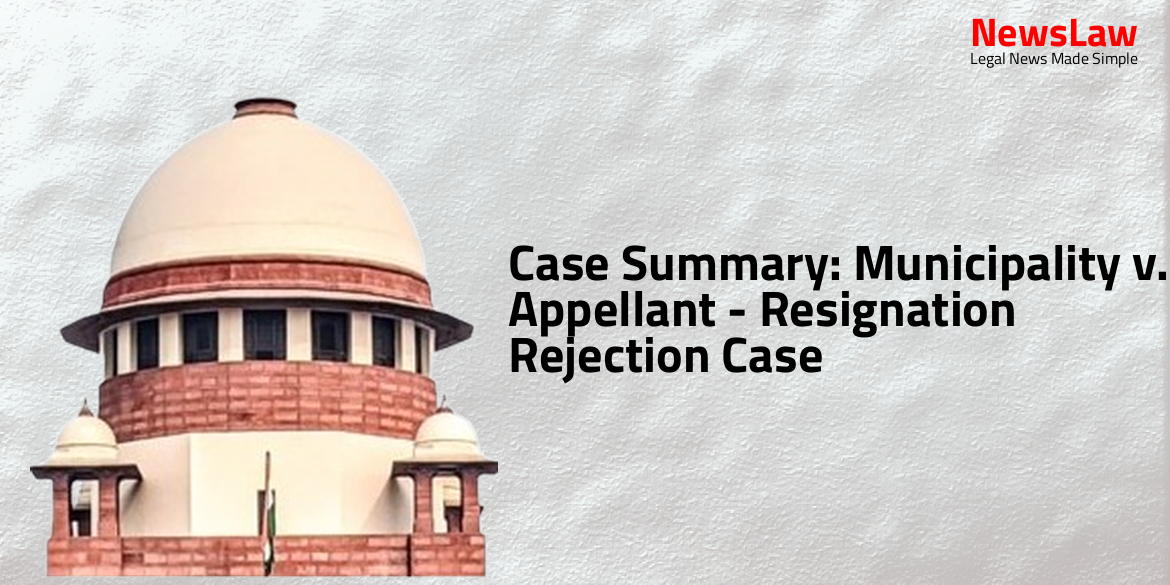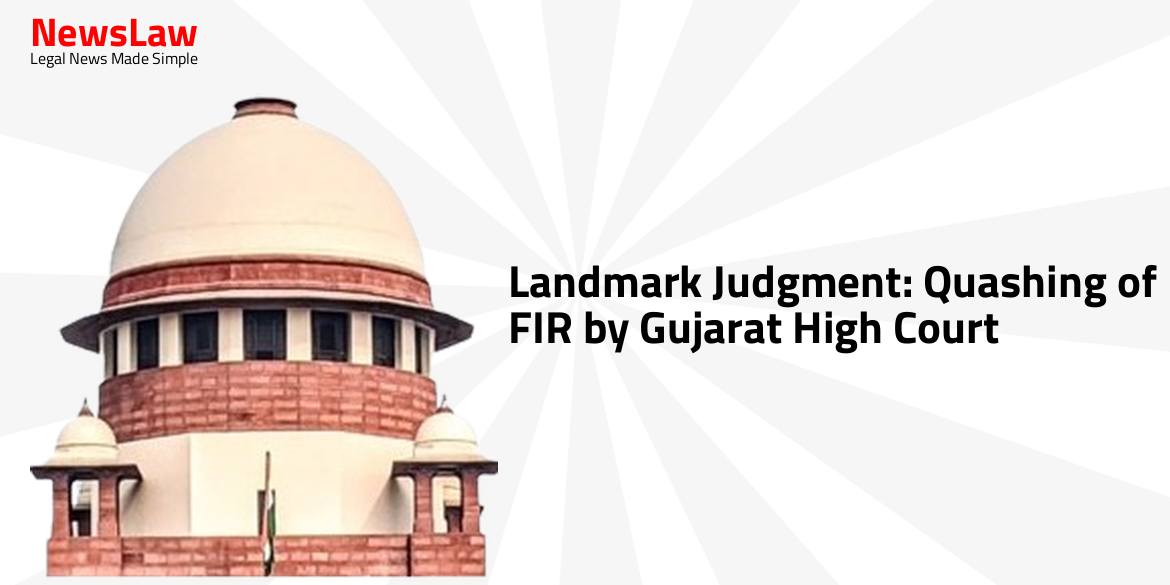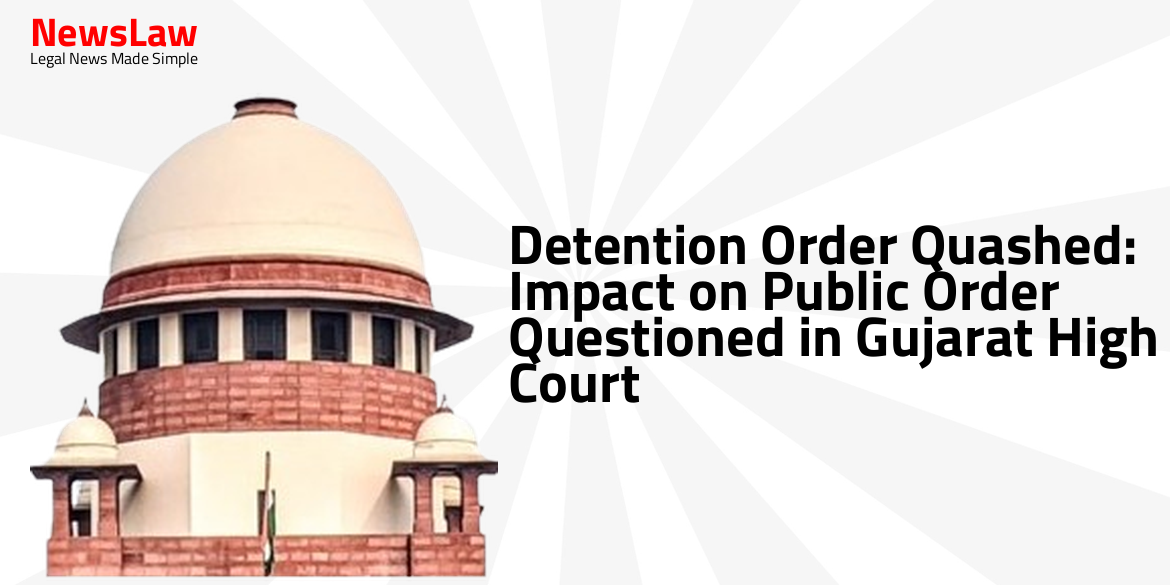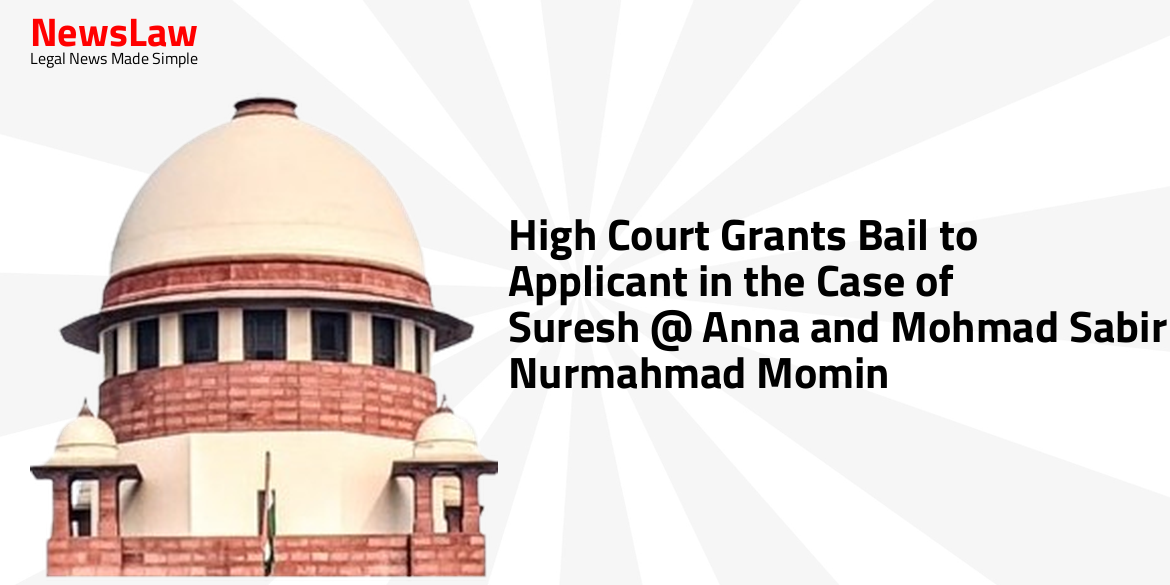In the case of Municipality v. Appellant, the Supreme Court of India delivered a significant judgement concerning the rejection of resignation by the Corporation. The appellant, a former Assistant Station Officer, tendered his resignation on 27.10.2022, which was later rejected by the Corporation. The Court’s decision sheds light on the interpretation of Clause 20 and Rule 36 of the Gujarat Civil Services Rules in the context of resignation acceptance. Let’s dive into the details of this intriguing legal battle.
Facts
- Appellant received a show-cause notice dated 24.08.2023 regarding termination of services due to alleged fraud in obtaining appointment.
- Municipal Commissioner issued a Certificate on 01.06.2021 indicating no objection to appellant’s appointment as Assistant Director.
- Appellant joined duty on 02.11.2022 after being appointed by Corporation’s Resolution on 28.05.2019.
- Appellant applied for the post lawfully, Corporation informed of his resignation on 28.10.2022.
- Appellant challenged the dismissal of the petition by learned Single Judge through this appeal under Clause 15 of the Letters Patent.
- Central Office informed appellant on 22.11.2022 that resignation not accepted due to ongoing vigilance inquiry.
- Petitioner was working as Assistant Station Officer, tendered resignation on 27.10.2022.
- Petitioner deposited the required sum on 28.10.2022 as per contract and requested relief.
Arguments
- Mr. Munjyasara, learned Counsel, argues that the rule should be interpreted in a practical manner
- He mentions that the clauses in the appointment order cannot be equated to Rule 36 of the Gujarat Civil Services Rules
- Mr. Munjyasara emphasizes that notice pay was promptly deposited in the treasury
- The appellant had sought to resign after office hours immediately as per a letter dated 27.10.2022
- Mr. Munjyasara cites cases to show that the departmental inquiry is breaching natural justice principles
- On the interpretation of Clauses 2, 19, and 20 of the appointment terms, Mr. Munjyasara argues that the resignation was valid
- The Corporation asked for notice pay as per the conditions of appointment
- The decisions referred to by Mr. Munjyasara are mentioned
- Mr. Naidu, representing the Corporation, opposes a request for a stay on the order
- An employee appointed on a contractual basis can resign by giving one month’s notice or after resignation is accepted with deposit of the bond amount.
- The resignation has to be accepted by the appointing authority, in this case, the Municipal Commissioner.
- The resignation is effective one month after the notice unless accepted earlier by the Corporation.
- The appointment order clearly outlines the terms and conditions of the contractual appointment.
- The employee must follow the specific conditions mentioned in the appointment order for resignation.
- The Corporation must accept or approve the resignation for it to be effective.
- The argument that automatic relief is granted on payment of bond money is not valid.
- The use of the word ‘or’ in Clause 20 does not support automatic relief upon bond payment.
- Rule 36 of the Rules states that if resignation is rejected, it cannot be deemed accepted.
Analysis
- The resignation of the appellant was tendered on 27.10.2022.
- The petitioner deposited the bond amount and one month notice pay after giving the resignation.
- The concept of ‘deemed acceptance’ does not apply as the notice period was within the 30-day timeframe.
- The learned Single Judge drew an analogy between Clause 20 and Rule 36 of the Rules.
- In the absence of formal communication rejecting the resignation, it would be deemed effective after the expiration of one month.
- The communication dated 22.11.2022 rejecting the resignation needs to be analyzed in the context of Clause 20 and Rule 36.
- The Corporation’s request to deposit bond money does not sever the relationship unless the request is rejected.
- The resignation was rejected by the Corporation less than 30 days after it was tendered by the appellant.
- The resignation is effective from the date it is accepted by the appointing authority, as per the Rule.
- The one month notice period prescribed under Clause 20 is similar to the provisions of Rule 36.
- Clause 20 and the general conditions of Gujarat Civil Services Rules, 2002 require the employer to approve or accept the resignation of the employee.
- The appointing authority is the employer in this case.
- The approval of resignation is a necessary step according to the mentioned rules.
- Rule 36 of the Gujarat Civil Services (General Conditions of Services) Rules, 2002 allows a government employee to resign by giving one month’s notice to the appointing authority.
- The resignation becomes effective from the date it is accepted by the appointing authority, or after the resignation is accepted as per Clause 20.
- If the resignation is not accepted before the expiry of the notice period, it is deemed to have become effective after the date of expiry of such period.
- The Corporation has the power to reject the resignation and inform the employee of the reasons for such rejection.
- The rejection of resignation by the Corporation before completion of the notice period is in line with the power granted under Clause 20 read with Rule 36.
- Clause 20 is in line with Rule 36, but clarifies the position in a better way ensuring efficiency in the resignation process.
- Deemed acceptance does not apply as the Corporation rejected the resignation within a month
- Clause 20 implies that a resignation must be accepted by the employer to end the contract
- There was no severance of the contract due to the employer not accepting the resignation
- The appellant’s resignation was rejected within 30 days, allowing the Corporation to initiate a departmental inquiry
Decision
- The respondent – Corporation is directed to take appropriate steps as per Rule 9 of the Gujarat Civil Services (Discipline and Appeal) Rules, 1971 based on show cause notices issued on 24.08.2023.
- The departmental inquiry conducted by the respondents must strictly adhere to the aforementioned Rule.
- The inquiry should be conducted promptly and the petitioners are instructed to cooperate without seeking adjournments.
- The Corporation must provide adequate opportunities to the petitioners as per Rule 9 and reasonable opportunities where no time limit is specified.
- The Court has not expressed any opinion on the merits of the show cause notices. Hence, the prayer to quash the rejection of resignation in the communication dated 22.11.2022 is denied.
Case Title: ABHIJIT AJITDAN GADHAVI Vs. AHMEDABAD MUNICIPAL CORPORATION
Case Number: R/LPA/376/2024



